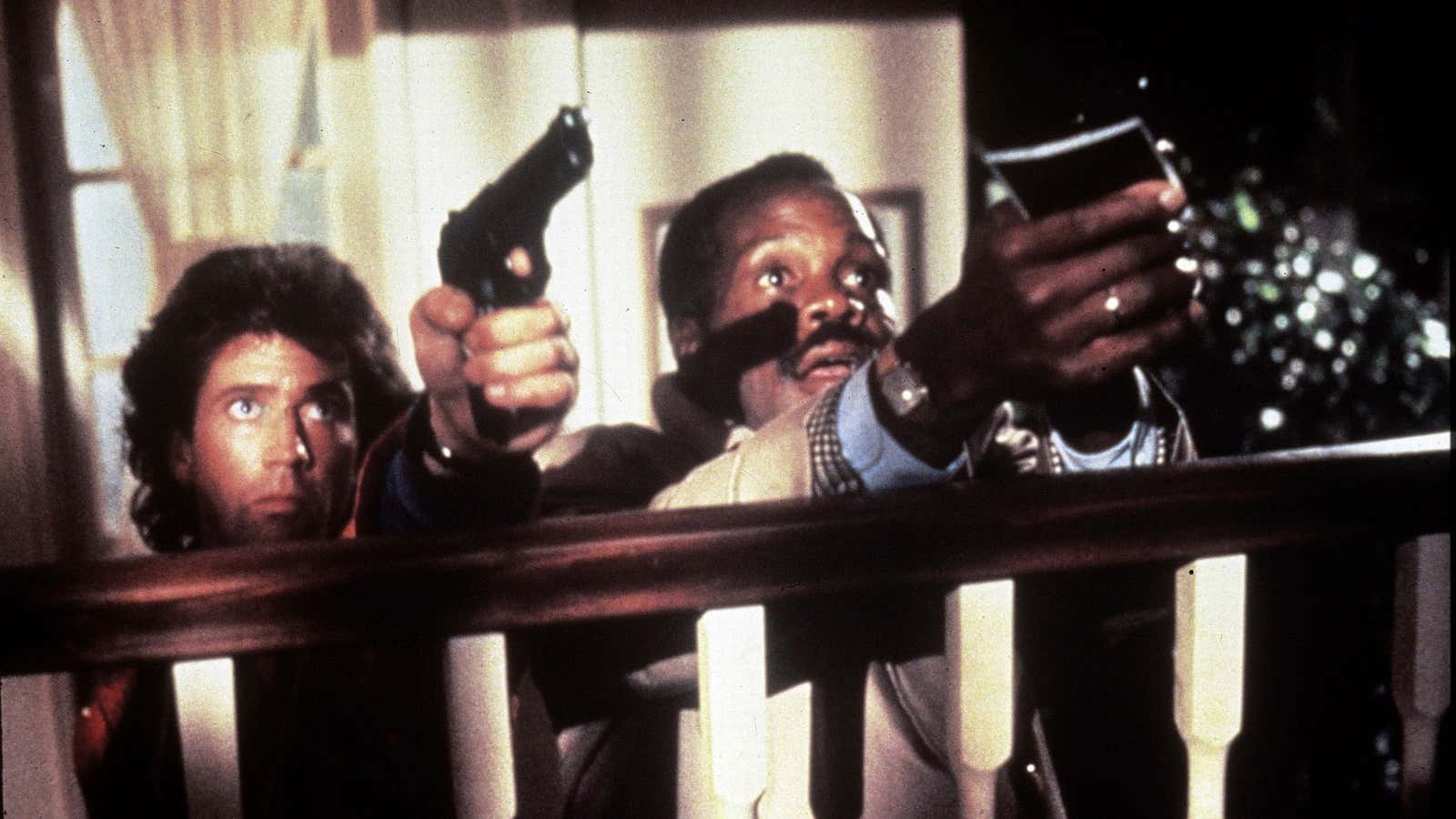If you’re a black cop in an American movie, you’re a lot more likely to end up squatting on a toilet with a bomb in it than sharing scars with the hottie from Internal Affairs. This isn’t anecdote; it’s research. A recent study from two criminal justice experts shows that for 40 years black police officers have most often been the punchlines of the American cop movie genre.
The researchers found that only 21 out of 112 police movies released from 1971 to 2011 had a black cop in a heroic role. And, in over half of those, black officers were there to give the audience laughs, rather than significantly advance the plot. Outside the movies, around one in five officers is black, say the authors.
The researchers took every film classified as a “cop movie” since the Clint Eastwood vehicle Dirty Harry (which they say defined the genre as we know it today), and culled all those that were specifically comedies, science-fiction, or anything that featured cops acting outside their jurisdictions. Then they sat down and watched over 240 hours of cinema, looking to see how the black and white main characters were portrayed, and using 40 criteria to classify on-screen actions into types.
Franklin Wilson, of Indiana State University, was one of the paper’s authors. He told Quartz: “Quite honestly, it’s eye-opening. You can watch a film and see one thing here or there, but when you watch 40 years’ worth of films, you can start seeing a pattern develop.”
In addition to the comic-relief stereotype, black cops were often portrayed as being caught between the black community and the police, Wilson said. There is a longstanding lack of trust between police and African Americans, stretching from colonial laws that allowed police to arrest blacks for being out after dark (ebook, pg. 22), to modern stop-and-frisk practices.
There’s lopsided justice inside the police force, as well: There have been black officers in America since 1802, but even up until 1962 many police departments required them to get a white officer’s permission before arresting a white suspect. In his book Policing America (pg. 364), author Ken Peak said this results in a so-called “double marginality”, where black officers feel ostracized both by the African-American community, and their fellow police.
The researchers say their next project is to see if the movie-world portrayal of black cops has any relationship to the way they’re perceived in the real world. If past efforts to connect media portrayals to society are any indication, they are up against a steep wall.
And if you’re wondering whether being a “hottie from Internal Affairs” is the typical fate of a female co-star, you won’t have to wonder for long: Wilson and his co-author’s next paper will give the same treatment to women in American cop movies.
